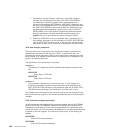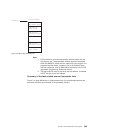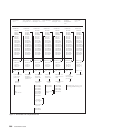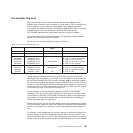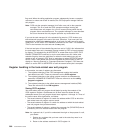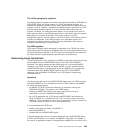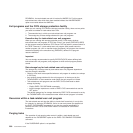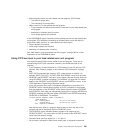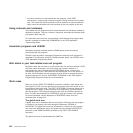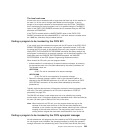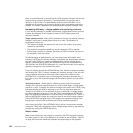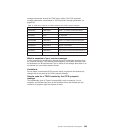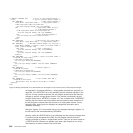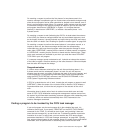DFHRMCAL, the task-related user exit is invoked in AMODE 24. For this reason,
task-related user exits which have been enabled without the LINKEDITMODE
option must reside below the 16MB line.
Exit programs and the CICS storage protection facility
When you are running CICS with the storage protection facility, there are two points
you need to consider for task-related user exits:
1. The execution key in which your task-related user exit programs run
2. The storage key of data storage obtained for your exit programs.
Execution key for task-related user exit programs
When you are running with storage protection active, CICS always invokes
task-related user exit programs in CICS key. Even if you specify EXECKEY(USER)
on the program resource definition, CICS forces CICS key when it passes control to
the TRUE. However, if a task-related user exit program itself passes control to
another program (via a link or transfer-control command), the program thus invoked
executes according to the execution key (EXECKEY) defined in its program
resource definition.
Important
You are strongly recommended to specify EXECKEY(CICS) when defining both
task-related user exit programs, and programs to which an exit program passes
control.
Data storage key for task-related user exit programs
The storage key of storage used by task-related user exit programs depends on
how the storage is obtained:
v Global or local work areas specified when an exit program is enabled, are always
in CICS key.
v Any working storage obtained for the exit program is in the key set by the
TASKDATAKEY of the transaction under which the exit program is invoked.
v Task-related user exit programs can use EXEC CICS commands to obtain
storage by issuing:
– Explicit EXEC CICS GETMAIN commands
– Implicit storage requests as a result of EXEC CICS commands that use the
SET option.
The default storage key for storage obtained by EXEC CICS commands is set by
the TASKDATAKEY of the transaction under which the exit program is invoked.
Recursion within a task-related user exit program
The task-related user exit has the ability to invoke itself recursively. It can do this,
for example, by issuing a DFHRMCAL call to its own entry name (as specified on
the EXEC CICS ENABLE command). It can also be entered recursively if it
performs an EXEC CICS SYNCPOINT when it is interested in SYNCPOINT
invocations.
Purging tasks
The operation of task purging when control is within a task-related user exit
depends on the PURGEABLE option on the EXEC CICS ENABLE PROGRAM
command.
If the PURGEABLE option is not specified:
290 Customization Guide



